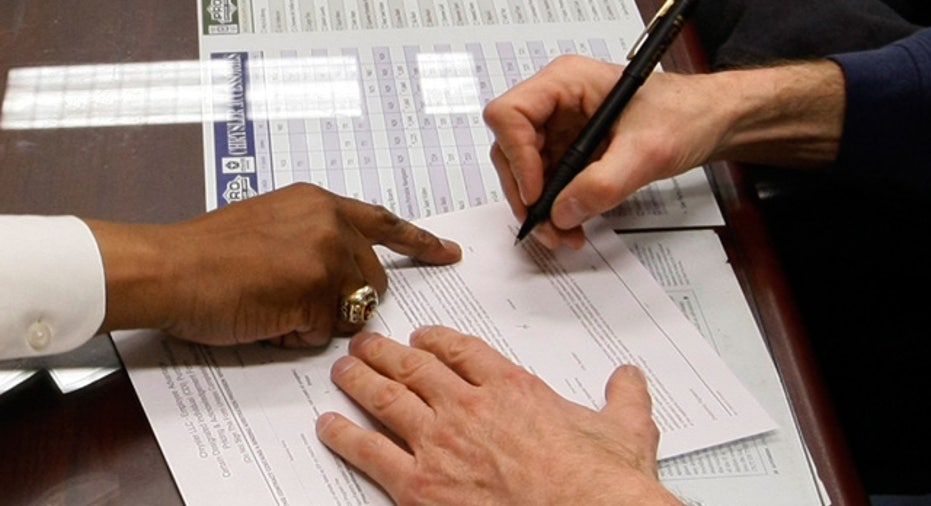Don't Co-Sign a Loan While in Chapter 13 Bankruptcy

Dear Opening Credits,
I am from New Jersey and currently going through Chapter 13 bankruptcy (month two of 60). My long-term boyfriend (not a partner legally through a civil union or other recognition) is recently employed and requires a car for transportation to and from work. His credit is less than stellar, and he cannot receive financial help from his family to secure a $4,500 loan for a car. Can I co-sign a loan for him? I realize that I am not an appealing debtor, but I make an adequate salary for both of us ($120,000/year). Any suggestions?
- Mike
Dear Mike,
Chapter 13 bankruptcy bankruptcy is a unique kind of legal protection. With it, you get to satisfy some of your creditors through the court, pay or discharge other types of debt and keep all of your assets in the process. Like a credit counseling agency repayment plan, it's in effect for three to five years.
In exchange for the ability to walk away from at least a portion of your unsecured liabilities while also keeping valuable property (that you might have had to give up in a Chapter 7 bankruptcy), you do lose a few freedoms. These include having to send money that you get from raises, bonuses and inheritances to your creditors so they receive the maximum amount, and not applying for any new loans or credit cards unless authorized by your court-appointed trustee.
As I'm sure you know by now, you are paying that trustee to oversee your case. The trustee's role is to make sure that you adhere to the rules so you don't abuse the system, but are also able to live without too much trouble.
So let's get to that car. You and your boyfriend are a couple and as such should function as a unit. That means a certain amount of shared expenses. I get that he needs a car to get him to and from his new job, but what I don't get is the automatic assumption that you ought to take out a loan to buy it. Here is why I think you shouldn't:
- He has bad credit. Even in the best of circumstances I rarely recommend co-signing a loan. Doing so with someone who has already proven himself to be a poor credit risk? Not a chance.
- You have bad credit. Normally a co-signing arrangement would work out because one person is guarantying the loan or line of credit with his excellent credit history. In your case, neither of you are gold in a lender's eyes. Therefore, if you did get financing, the deal would be miserable.
- Your trustee would think it's a bad arrangement. Remember the trustee's role as the gatekeeper? The trustee will assess your request and make a determination. I doubt you'll get a thumbs up. The new loan would mean new payments -- and your income is already promised to old debts.
Happily, you have a better option. You are both employed and from my vantage point, making decent cash. One quick look at online vehicle sales websites indicates an abundance of cars on the market, starting at just a couple of thousand bucks. I think you and your partner should buy one with funds you can scrape together in a month or two. A glamorous ride it may not be, but if the goal is to transport him from point A to point B, that shouldn't be a problem. He can get to his job and other places, start a savings account, obtain a credit card in his name and rebuild his credit rating.
Meanwhile you can concentrate on completing the Chapter 13. When it's done, you too would be wise to take the slow but steady road to economic security: Save and invest. Borrow and repay. Work together to create a healthy, happy home.



















